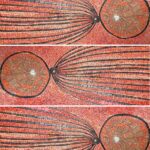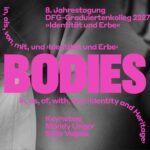Working Group: Sex work history – Adrina Schulz (Zurich), Alisha Edwards (Bochum), Annalisa Martin (Glasgow/Greifswald), Nora Lehner (Vienna/Berlin), Priska Komaromi (Berlin) and Sonja Dolinsek (Magdeburg/Berlin)
Zeit: 10.-11.10.2024
Ort: Freie Univ. Berlin
Programme (Web)
Panels: Ethical and methodological questions: Should we even try? And, if yes, how? | Sex workers’ narratives | Interacting with clients | Sex work and public health: Medical constructions of “sex work” | Pleasure, work, and sexual culture: Fluid boundaries
Keynote: Elisa Camiscioli (Binghampton): Making French Sex: Fantasy, Practice, Desire
In the past decades, the history of commercial sex has become a burgeoning field of research. While early scholarship confined “prostitution” to the fields of social history and women’s history, the past decade has witnessed a broadening of perspectives and methodological approaches – from cultural history to global history and histories of labor, gender, the body, and sexualities. Despite the development of the field and the evident centrality of sex to sex work, it is precisely these sex practices that have received the least analytical attention in historical research. This stems in part from the methodological difficulties involved in accessing past sexual practices and experiences in historical sources. It might also be due to the “respectability” politics that historians engage in when trying to research sex work while avoiding the “prostitution stigma” attached to the topic and to the subjects who performed it. By focusing on governmental perspectives, social and economic factors, and media and social constructions of “prostitution”, historians could attempt to avoid the sex of sex work. Nevertheless, as trends in the fields of the history of sexuality and queer histories have shown, concrete sexual practices are situated in specific times and social environments. Read more and source … (Web)

 Erstes Forum für Dissertant:innen und Forscher:innen in Österreich und angrenzenden Regionen an der Univ. Innsbruck
Erstes Forum für Dissertant:innen und Forscher:innen in Österreich und angrenzenden Regionen an der Univ. Innsbruck  Tanja L. Jones
Tanja L. Jones  DFG-Gradiertenkolleg 2227 „Identität und Erbe“
DFG-Gradiertenkolleg 2227 „Identität und Erbe“